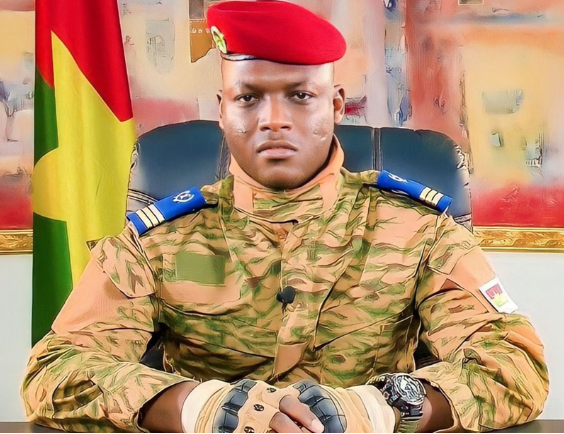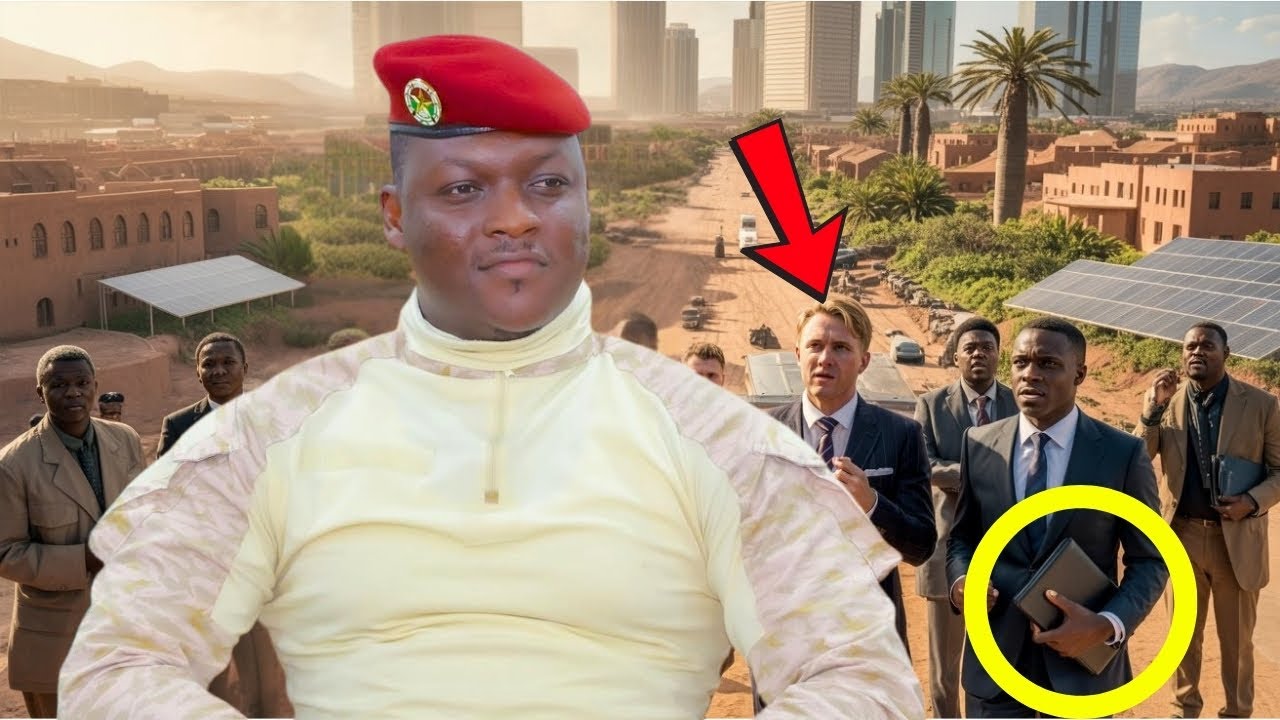**Headline: Captain Ibrahim Traoré Ignites a Healthcare Revolution: Traditional Medicine Takes Center Stage in Burkina Faso**

In a groundbreaking move that could reshape the medical landscape across Africa, Captain Ibrahim Traoré, the audacious leader of Burkina Faso, is boldly challenging centuries of Western-imposed healthcare narratives. With a fierce commitment to restoring the dignity and efficacy of traditional medicine, Traoré has announced a monumental initiative to integrate these age-old healing practices into the country’s hospitals and healthcare system. This is not just a policy change; it’s a revolutionary call to arms for an entire continent to reclaim its health sovereignty.
For too long, Western powers have perpetuated the myth that African traditional medicine is inferior, branding it as folklore or superstition. This colonial legacy has systematically undermined the rich tapestry of African healing practices, forcing generations to abandon their ancestral wisdom in favor of foreign medical systems often profit-driven and disconnected from local needs. Captain Traoré’s vision flips this narrative on its head, positioning traditional medicine as a cornerstone of Burkina Faso’s national health policy.

The newly formed Center for Traditional Medicine and Integrated Care (CMTSI) will serve as a vital hub for the regulation, standardization, and promotion of traditional healing practices. From regional hospitals in bustling Ouagadougou to remote villages, every Burkinab citizen will gain access to culturally rooted, effective healthcare that honors their heritage. This initiative is already taking shape, with a landmark workshop convened by the Ministry of Health, bringing together traditional healers, medical professionals, and policy makers to draft essential governance texts for this ambitious program.

With this initiative, Traoré is not merely re-establishing traditional medicine’s role within healthcare; he is dismantling the colonial chains that have constrained African healing systems for far too long. By investing in local knowledge and resources, Burkina Faso aims to reduce its reliance on expensive foreign pharmaceuticals while fostering a self-sustaining health economy that empowers its people.
The response to this bold initiative has been nothing short of electrifying. Traditional healers in Burkina Faso have already gained recognition for their effective treatments against chronic ailments, showcasing the power of herbal remedies and holistic approaches often overlooked by Western medicine. Stories of miraculous healing abound, with practitioners addressing conditions deemed untreatable by conventional methods, reinforcing the validity and efficacy of African healing practices.
This revolutionary approach is resonating beyond Burkina Faso’s borders, igniting a wave of support across the African continent and diaspora. Rallies advocating for Traoré’s vision have erupted in cities from London to New York, signaling a collective awakening to the potential of traditional medicine and the necessity of reclaiming African identity.

However, this bold move also sends shockwaves through Western circles, exposing the deep-seated fears of a collapsing narrative that has long dictated African health and well-being. The West’s attempts to discredit Traoré highlight their anxiety over a continent no longer willing to bow to colonial legacies. As he champions the integration of traditional medicine, Traoré is simultaneously asserting that Africa is capable of self-governance, innovation, and healing.
In a world increasingly aware of the limitations of conventional healthcare models, Captain Ibrahim Traoré’s initiative marks a historic turning point. It is a clarion call for all Africans to embrace their cultural heritage, trust in their indigenous knowledge, and lead the charge towards a future where health care is not just a service but a reflection of identity, community, and resilience.
The revolution has begun in Burkina Faso, and the world is watching. As this visionary leader champions traditional medicine, he is not just reshaping a nation; he is igniting a movement that could redefine healthcare across Africa. The time has come for Africans to reclaim their health, their culture, and their destiny.



